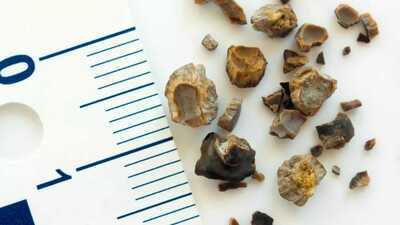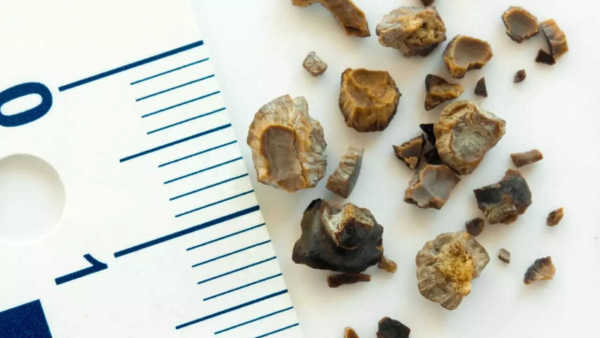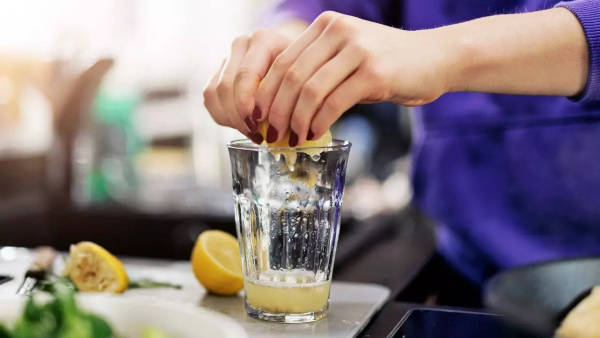
“Drink that water!”
Often, we see this written on a sticky note to remind ourselves that staying well-hydrated isn’t just about avoiding thirst – it’s also about supporting everything your body does, from digestion, circulation, temperature regulation, to kidney function and more. Keeping up with the common belief around “hydration,” many people are aware and wholeheartedly swear by the rule of thumb “eight glasses of water a day.” While that isn’t untrue or harmful, newer research and expert guidelines are showing new evidence that the hydration needs vary depending on several factors, like sex, climate, exercise, health, and more.
Now, for people suffering from kidney stones , drinking enough water is especially important. If a kidney stone has formed, timely hydration can help the stone move, reduce pain, and avoid complications. Understanding how much water you need and when to drink can make a difference in avoiding kidney stone surgery or long, painful days.
Kidney Stones: Hydration and natural passage
What exactly are kidney stones? Kidney stones are hard mineral deposits that build up in your kidneys or urinary tract. They often hurt badly when they move, but many people don’t realize how much something as simple as drinking water can affect whether you get stones or can pass them without surgery. Experts say that staying well-hydrated is one of the best tools to prevent stones and help small ones move out of your system on their own. But exactly how much water is enough? And under what circumstances will natural passage work?
Recent studies give clearer answers – and they matter, because delaying care when stones won’t pass on their own can lead to serious pain or complications.
How much water should you be drinking?
While water is considered the best “fluid,” other unsweetened drinks count as well. Sometimes adding citrus (lemon or lime juice) helps because citrate in them can reduce stone formation. But how often should you be consuming fluids?
General prevention target: If you’ve had kidney stones before, or are trying to avoid them,
Harvard Health recommends aiming for enough fluid intake so your urine output is at least 2 to 2.5 liters per day (almost 8 to 10 cups or more of water or fluids) to keep your urine diluted.
Higher target for stone formers/recurrence risk: For people prone to stone formation, many
experts suggest drinking 2.5 to 3 liters of water per day, or more if you're losing extra fluid (hot climate, heavy sweating, physical work).
When fluid intake is judged by urine appearance:
What to watch out for? Your urine should be pale yellow or almost clear. If it is darker, you’re likely under-hydrated. Regular fluid intake throughout the day works better than drinking a lot in short bursts.

When can kidney stones pass naturally?
Although kidney stones are quite common, the pain that comes with them can be quite scary. However, it should be kept in mind that not all stones require surgery or other invasive treatments.
Many small stones can pass on their own, provided certain conditions are met. What those conditions are, especially size and location, makes a big difference.
Stones
smaller than 4 mm are the most likely to pass naturally. Research suggests that about 80% of stones under this size will be expelled from the body without surgical help, often within one to two weeks.
Stones in the
4 to 6-mm range have more variable outcomes. Around 50-60% may still pass naturally, but the time required often stretches to three to five weeks or more. The likelihood is lower the larger the stone gets, or if it’s positioned higher up in the urinary tract.
If a stone is
larger than about 6 mm, the chances of natural passage drop substantially. It may still pass, but the wait can be long – weeks to months – and the risk of complications rises. Many such cases require medical intervention, such as breaking up the stone or surgical removal.
The location of the stone matters too. Stones that are closer to the bladder (lower in the ureter) are more likely to pass naturally than those still high in the kidney or near the junction between the kidney and ureter.
A study of ureteral stones (stones in the tube connecting the kidney to the bladder) shows that even stones of 2-4 mm sometimes take up to 30-40 days to pass naturally, depending on their exact size, side (left/right), and location. Stones greater than about 5 mm have much lower spontaneous passage rates.

The final word
To put it in simpler terms: if you want to prevent kidney stones , or help small ones pass naturally, drink plenty of water – aim for about 2.5 to 3 liters of fluids daily (more if your environment or activity causes you to lose more). Keep your urine pale, and don’t rely on one large drink; spread the intake throughout the day.
If a stone is under about 4 mm, there’s a good chance it will pass naturally with this level of hydration and care, often within a couple of weeks. Stones 4-6 mm may take longer, and anything over 6 mm usually needs medical attention. Pay close attention to symptoms; don’t wait if pain is severe, there’s an infection, or no progress over weeks.
Consulting a urologist or healthcare provider is always recommended if you suspect a kidney stone. Early guidance can make all the difference in comfort, safety, and avoiding complications.
-
'Pakistan Is Another State Sponsor Of Terror': Human Rights Lawyer Hillel Neuer Slams Pakistan At UN

-
PM Modi Inaugurates Combined Commanders' Conference At Eastern Command, First Post-Operation Sindoor

-
Mustafizur Rahman’s Screamer Removes Zeeshan Ali in BAN vs HK

-
Amazon Great Indian Festival 2025: Lava Agni 3, Bold N1 5G, Storm Lite Smartphone Deals Starting At ₹5,219

-
Toronto Teacher Suspended For Playing Charlie Kirk Assassination Video For Class 5 And 6 Students; Says 'He Deserved It'
